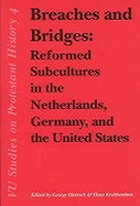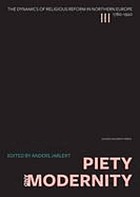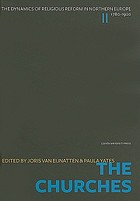 Breaches and Bridges: Reformed Subcultures in the Netherlands, Germany, and the United States
by
George Harinck, Hans Krabbendam
Breaches and Bridges: Reformed Subcultures in the Netherlands, Germany, and the United States
by
George Harinck, Hans Krabbendam
 Piety and Modernity
by
Anders Jarlert (Editor)
Piety and Modernity
by
Anders Jarlert (Editor)
 The Churches
by
Joris Van Eijnatten (Editor); Paula Yates (Editor)
The Churches
by
Joris Van Eijnatten (Editor); Paula Yates (Editor)
